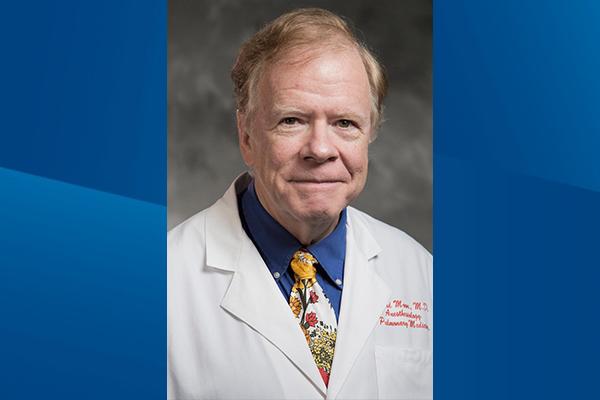
The National Aeronautics and Space Administration (NASA) Shared Services Center has awarded Duke Anesthesiology’s Richard Moon, MD, a $249,023 grant for his project titled, “Chamber Pilot Study Plan for NASA Prebreathe Protocol.”
This project is preliminary work in preparation for the development of protocols for extravehicular activity (EVA, “spacewalks”) to minimize the risk of decompression sickness, which is crucial due to the potentially life-threatening consequences associated with this condition.
When astronauts perform EVAs, the spacesuit pressure is only one-third of an atmosphere (4.3 psi, 222 mmHg, equivalent to 30,000 ft altitude). While they breathe 100% oxygen during EVAs, the reduction in pressure from the space station (1 atmosphere, 14.7 psi, 760 mmHg) can induce nitrogen bubble formation and decompression sickness. To minimize this risk, in order to reduce tissue nitrogen before decompression, they breathe 100% oxygen for several hours before the EVA. The most efficient protocol for this is still under development.
Volunteer subjects representing the population demographic similar to the astronaut corps will be recruited to participate in four 12-hour chamber runs. Subjects will complete a peak oxygen consumption test to ensure adequate fitness. Subjects also will be familiarized with the EVA simulation workstations, including arm and leg exercises. On a test day, subjects will breathe 100% oxygen for six hours, followed by a six-hour simulated EVA in the hypobaric chamber at an equivalent altitude of 30,000 feet. During that time, heart rate will be continuously recorded, along with intermittent monitoring with ultrasound to detect intravascular bubbles, as well as possible symptoms of decompression sickness.